Translational Research Program
EQUS’ flagship Translational Research Program provides resources, advice and industry connections to develop our research into prototypes and technical demonstrations. It helps our researchers translate EQUS research outcomes into wider societal impact. The Translational Research Program’s activities include education and mentoring, as well as building and facilitating industrial, government and commercial relationships for the benefit of EQUS researchers.
The TRP has established three primary programs for directly supporting research translation in the Centre:
- Translation Stipends provide for a PhD candidate to undertake translational research without affecting their main research.
- Translation Fellowships allow a postdoctoral fellow to dedicate some of their time to translational research.
- Facilitation Projects fund the costs of equipment and resources required to build a prototype or demonstration technology.
For more information about these programs, including details on eligibility and how to apply, EQUS members may visit the EQUS Hub (requires login) or email trl@equs.org.
EQUS and our external partners deliver seminars, workshops and events throughout the year, focusing on research translation, the quantum industry and technology commercialisation. To be kept updated on our events and occasional news, please sign up to our mailing list below.
EQUS translation stories
Redback Systems echelle spectrometer
An EQUS team at Macquarie University saw the potential for others to use a high-resolution spectrometer design they had constructed for their own research needs on nitrogen–vacancy colour centres in diamonds. EQUS’ Translational Research Program provided funds and support so they could redesign the system from a table full of optics into a small and rugged prototype device. The translation project bridged the gap from lab to demonstration. Since then, the team has founded a startup company, Redback Systems, to refine the technology and have started selling this unique instrument to customers all over the world.
Read more: https://equs.org/sites/default/files/equs_trl_redback_systems_echelle_sp...
Stratospheric and low-Earth-orbit coherent optical links
At the University of Western Australia, a multidisciplinary team including EQUS members invented a new system for point-to-point communications using light. EQUS’ Translational Research Program funded building a demonstration device to show the world’s first phase-stabilised coherent optical transfer system working over a true point-to-point free-space link. During international testing, the technology set a new global record for the most stable optical-frequency transfer, an order of magnitude better than state-of-the-art optical atomic clocks. The team is now working to integrate this technology into a satellite ground station.
Read more: https://equs.org/sites/default/files/equs_trl_stratospheric_and_leo_cohe...
Supressed-noise oscillators
Low-noise oscillators are important to fields as diverse and important as radar, 5G telecommunications, precision gravity sensing, and quantum technologies. An EQUS team at the University of Western Australia used funding provided by the Translational Research Program to design and build a high-Q resonator for use in a low-noise oscillator. The proof-of-principle system that they built was used to demonstrate a sensitive gravity gradiometer. The team is now engaged with multiple industry partners applying this technology to problems ranging from communications to mining and defence.
Read more: https://equs.org/sites/default/files/equs_trl_supressed_noise_oscillator...
Quantum error correction simulator
Quantum computers are developing at breakneck speeds, with tech giants, startups, and academic teams all working to make them practical and useful. A major barrier to this development is the presence of errors and so quantum error correction is expected to be crucial in any future commercial quantum computer. EQUS’ Translational Research Program has enabled a team at the University of Sydney to convert their cutting-edge simulations of quantum error correction codes and decoders into a software package called QECSIM. The translation funds allowed QECSIM to become freely available to academic and industrial research communities, and packaged it for ease of use and extension.
Read more: https://equs.org/sites/default/files/equs_trl_quantum_error_correction_s...
Major funding support

The Australian Research Council Centre of Excellence for Engineered Quantum Systems (EQUS) acknowledges the Traditional Owners of Country throughout Australia and their continuing connection to lands, waters and communities. We pay our respects to Aboriginal and Torres Strait Islander cultures and to Elders past and present.


